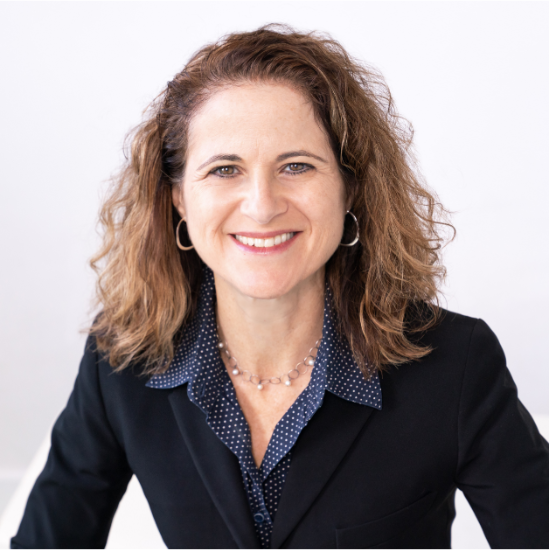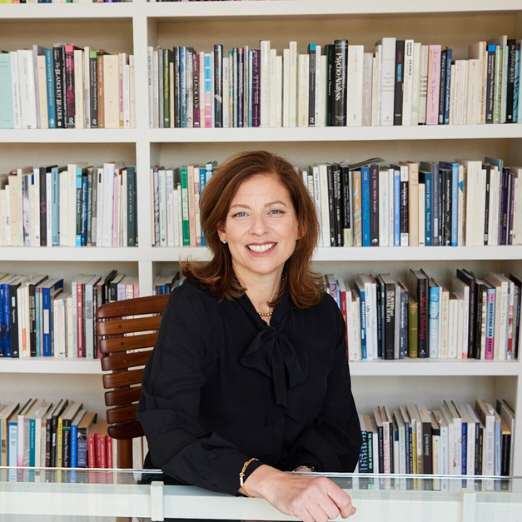Strengthening the Position of Humanities Faculty
At the October 2023 ACLS Research University Consortium meeting, Jeffrey Cohen, Sara Guyer, and Rebecca L. Walkowitz participated on a panel about how to strengthen the position of humanities faculty. In answer to the question, Where are you in the process of working with faculty and departments to strengthen the humanities, all three panelists shared some insights into how they were approaching this essential work.
Rebecca L. Walkowitz, Dean of Humanities at Rutgers University-New Brunswick

Rebecca L. Walkowitz, Dean of Humanities at Rutgers University-New Brunswick, spoke about the importance of building trust and letting departments lead change efforts. Much of her recent work has focused on supporting language departments. At Rutgers, traditional metrics such as the number of majors don’t capture what’s happening: many students take 1-2 years of language classes, language minors are expanding, and classes directed at nonmajors are growing as well. But these numbers don’t always translate into majors. In the case of small majors such as languages, Walkowitz argued, we need other ways to measure their value. In coordination with faculty and students, she did several things:
- She invited language departments to show each other the structure of their majors and to consider whether the first year of language study might count toward the major (a practice in some but not all departments).
- The School of Arts and Sciences launched a university-wide campaign created by the Division of Humanities, the Year of Languages initiative (2022-23), which came out of discussions among humanities chairs and faculty about how to highlight multilingualism on campus. (A 2020 survey showed that 68 percent of students identify as heritage language speakers.) The year featured a range of co-curricular programming, outreach, events in the visual and performing arts, and food and culture festivals. Walkowitz issued a “Why Do I Learn Languages?” challenge to students: a short essay challenge in the fall and a video challenge in the spring. The results (which were “amazing”) were used in communications and on different websites across campus.
- Walkowitz wrote publicly about the value of languages and in particular, language research for The Chronicle of Higher Education, which she sees as something she is well equipped to do: explain the nature and the value of humanities research to upper administrators and higher education’s multiple publics.
Sara Guyer, Dean of Arts and Humanities at the University of California, Berkeley

Sara Guyer, Dean of Arts and Humanities at the University of California, Berkeley, has been working to make sure that humanities faculty know that they are valued, which has included a lot of “reframing the narrative and recontextualizing the data.” She too has focused on encouraging collaboration between departments and working with faculty to elevate the visibility and value of world languages. Shortly after arriving at Berkeley, Guyer initiated a Task Force on Languages, Language-Based Disciplines and Global Citizenship. In response to the recommendations of this task force, which focused on supporting and making more visible Berkeley’s longstanding commitment to global languages, the Division has undertaken the following activities:
- In fall 2023, the College of Arts and Humanities published A Celebration of World Languages at UC Berkeley, a website with interviews about the value of studying and teaching languages.
- The same semester, the College unveiled its campus-wide banner campaign with colorful banners featuring facts about the study of languages at Berkeley and quotations from students, faculty, and alumni about speaking other languages.
- Connected with both of the above, fundraising efforts are focused on bringing in additional resources to support teaching and researching in smaller departments.
Jeffrey Cohen, Dean of Humanities at Arizona State University

Jeffrey Cohen, Dean of Humanities in the College of Liberal Arts and Sciences at Arizona State University, has also tried to address his faculty’s sense of not being valued; an added challenge at ASU is that even though the largest number of humanities scholars are within the division he leads, a significant number are also embedded across the varied colleges and schools of the university. His office worked with a marketing firm as well as the internal communications staff to understand why students hesitate to major in the humanities even when they enjoy their coursework; create a publicity campaign that speaks to both students and parents; and better spotlight what was happening across the humanities at ASU. Cohen talked about several ways in which they were working with faculty and students to raise the profile of the humanities:
- Beginning in 2021, the dean’s office organized an annual Humanities Week, held in the fall, with robust programming and outreach, including an alumni panel focused on careers.
- In surveys, students identified humanities courses as their favorites but could not describe what they could do with a humanities degree. The new Humanities website now provides some answers to this question with descriptions of the skills students develop in the humanities, interviews with ASU alumni, and clear descriptions of degrees. Cohen noted the importance of appealing to first generation students, which make up a sizable portion of the student population (one in three) at ASU. He now teaches a course on career skills for humanities majors.
- Faculty created new programs, including a major in Culture, Technology, and Environment (comprised of existing courses), and forthcoming majors in Sports, Society and the Human Experience; Global Citizenship; and Narrative Studies.
In the ensuing conversation, audience members asked questions and added further strategies for supporting and strengthening humanities faculty.
A community for sharing and uplifting the work of creating more just, humane, and innovative colleges and universities

